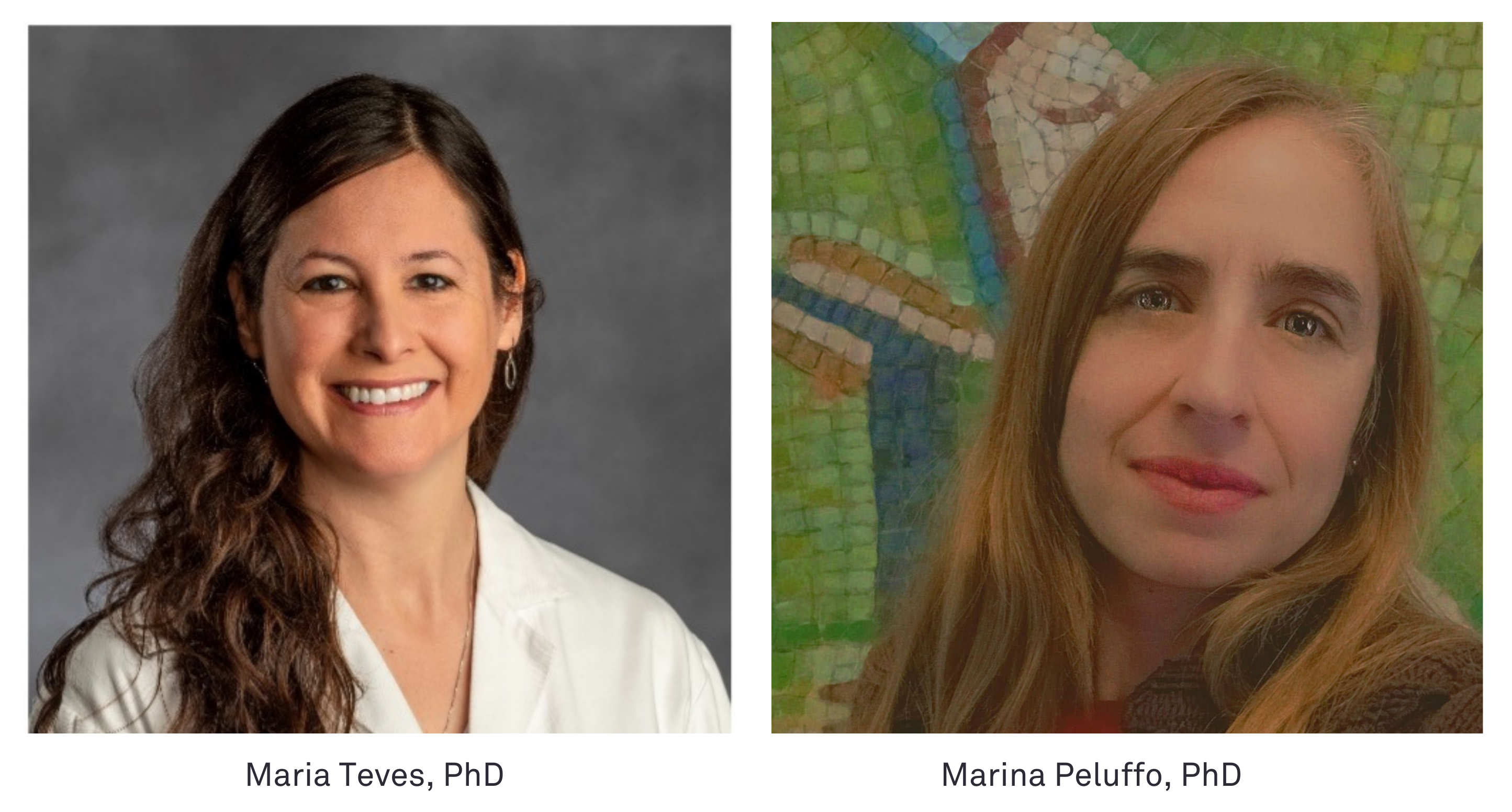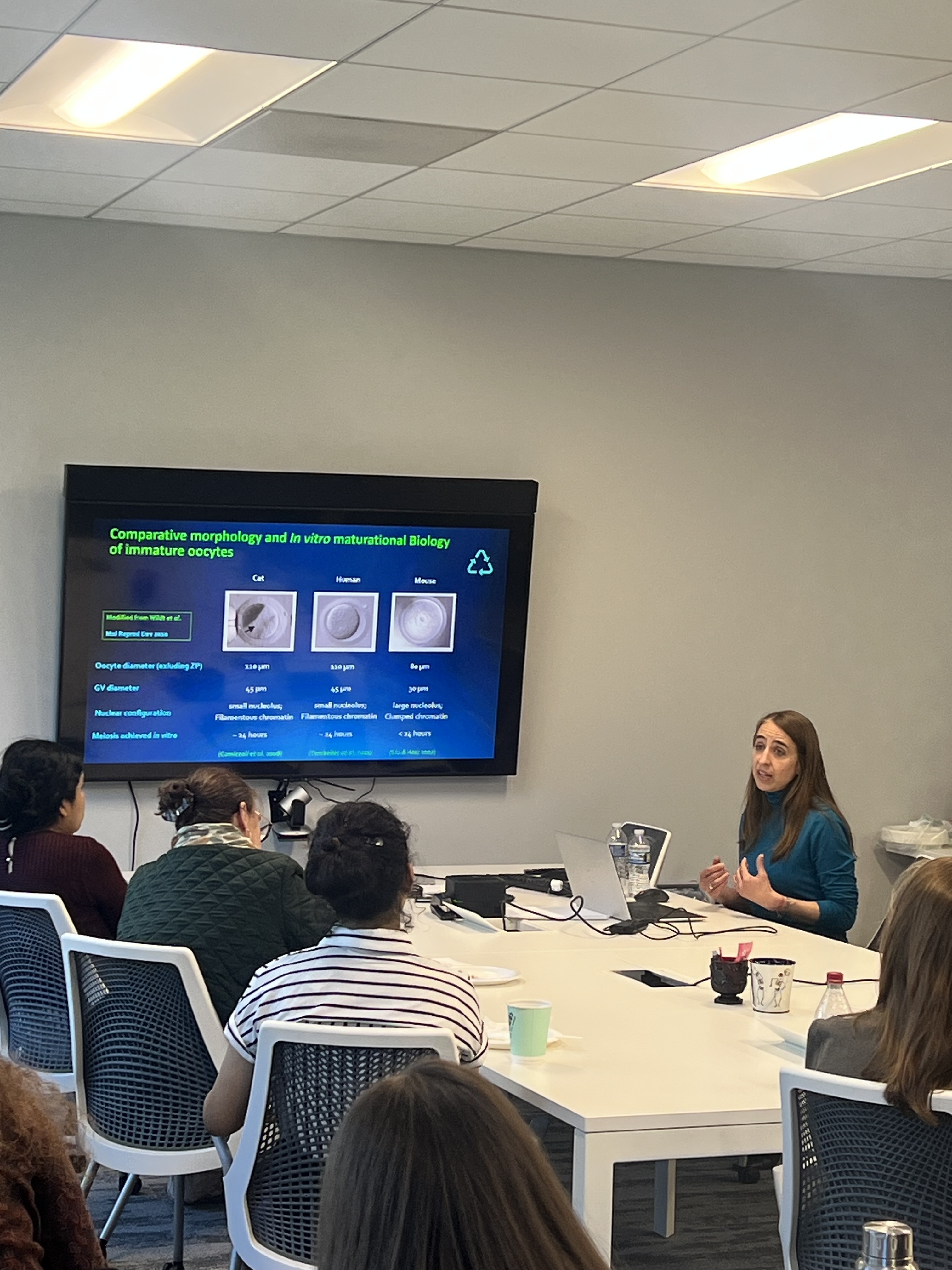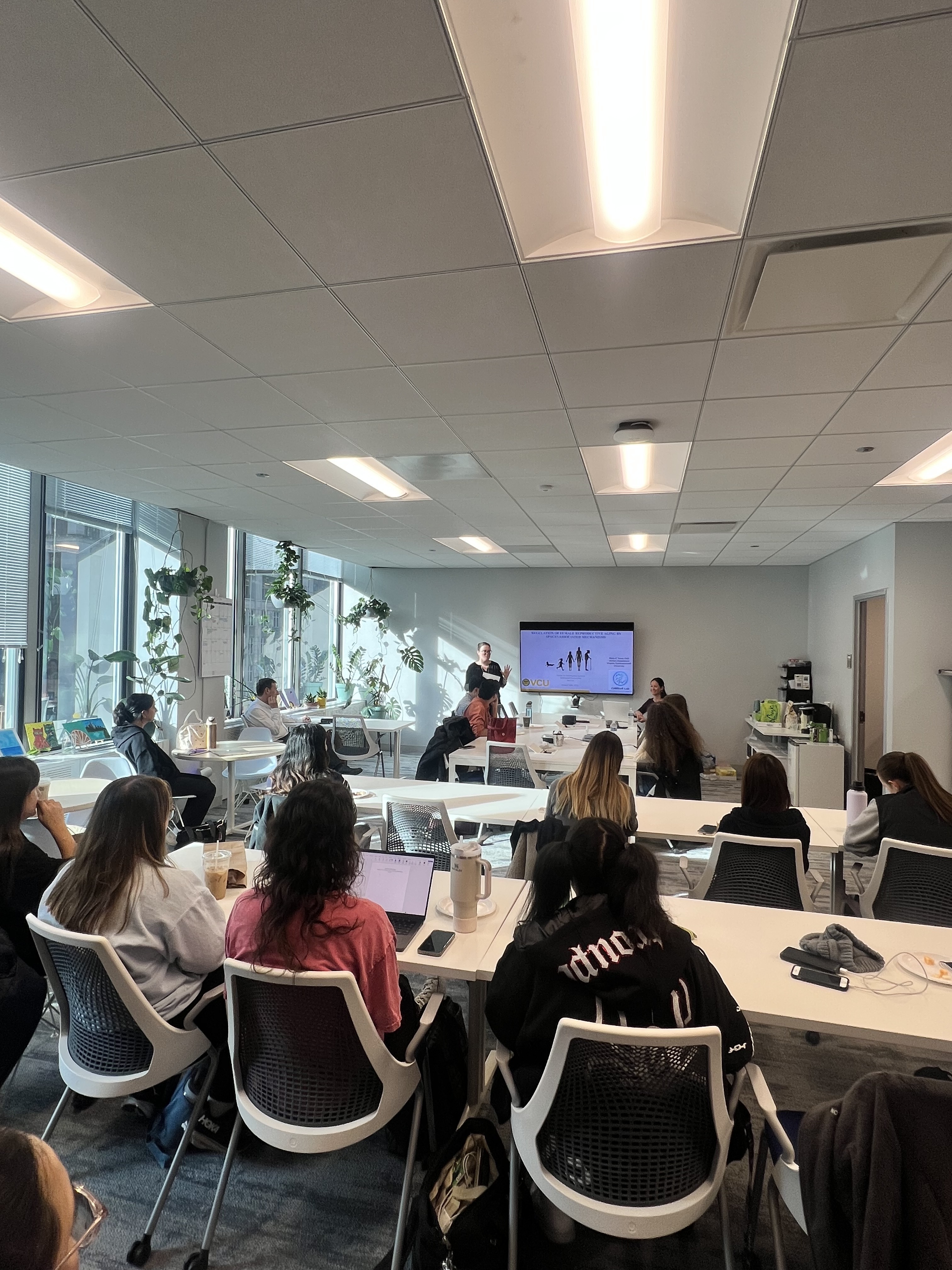CRS Special Seminars: Exploring New Frontiers in Reproductive Science
This month, the CRS community had the privilege of hosting two inspiring seminars featuring distinguished international scientists whose work is reshaping reproductive biology. Dr. Marina Peluffo and Dr. Maria Teves each brought unique perspectives that bridged molecular discovery and clinical relevance, highlighting how fundamental research continues to open new possibilities in fertility, contraception, and tissue health. The seminars sparked great conversations, invigorating the CRS community’s research minds. 
Spotlight on Dr. Marina Peluffo’s Seminar
Dr. Peluffo, an esteemed reproductive biologist, joined the CRS community in Chicago while in route to the upcoming American Society for Reproductive Medicine meeting. Her visit offered a special opportunity to engage directly with one of Argentina’s leading figures in ovarian science. Her expertise covers folliculogenesis, corpus luteum biology, and the molecular pathways of ovulation, bringing together a depth and range rarely seen in this area. Her talk emphasized the urgent need for innovative contraceptive strategies, highlighting limitations and long-term side effects of current steroid-based methods. Environmental concerns further motivate the development of tissue-specific, non-steroidal contraceptives with minimal ecological impact. 
Her research on chemokines, particularly MCP1 and its receptor CCR2, that regulate ovarian activity across species, from non-human primates to domestic cats, brings insight into the molecular regulators of cumulus expansion and oocyte maturation and potential targets for fertility enhancement and contraception. Unlike rodents, cat oocytes share key morphological traits with human eggs, making them ideal for translational research. Dr. Peluffo also shared data from human IVF studies, showing that higher MCP1 levels in follicular fluid and serum correlate with a greater number of mature oocytes. These results suggest that chemokine-based signaling could serve as a predictive biomarker in fertility treatments, particularly for patients with inflammatory or metabolic conditions such as PCOS and obesity. Dr. Peluffos’s visit highlighted the value of transparency, collaboration, and perseverance in advancing reproductive health research.
Spotlight on Dr. Maria Teves’s Seminar
The CRS seminar series also welcomed Dr. Maria Teves, professor in the Department of Obstetrics and Gynecology at Virginia Commonwealth University and head of the Cell Molecular Biohealth Research Lab at ACU. Her talk explored how a single gene, SPAG17 (sperm-associated antigen 17), links reproductive biology, fibrosis, and systemic aging, revealing a surprising bridge between fertility and long-term tissue health. Originally identified as a sperm protein involved in male infertility, SPAG17 is essential for spermatogenesis, embryonic development, and cilia formation. Dr. Teves’s research shows that SPAG17 is also active in female reproductive tissues, including granulosa, theca, and oocyte cells. A key finding from Dr. Teves’s lab is the unexpected role of SPAG17 in protecting against fibrosis. Using advanced histological and AI-based imaging tools like FiberNest, her team showed that SPAG17 deficiency causes excess collagen buildup, tissue stiffening, and inflammation across multiple organs. Combined with elevated senescence markers (p16, p21, p53), these results suggest that SPAG17 safeguards tissues from premature aging and fibrotic damage. 
SPAG17 localizes to the primary cilium, Golgi apparatus, and centrosome. Its absence shortens cilia and disrupts important signaling pathways that regulate fibrosis-related genes. Dr. Teves’s team is investigating treatments such as lithium chloride to potentially reverse fibrotic cell changes in vitro, suggesting potential for “ciliotherapy” as a new therapeutic approach for fibrotic and reproductive diseases.
Both seminars underscored how fundamental molecular research continues to drive innovation in reproductive medicine. From Dr. Peluffo’s exploration of chemokine signaling and novel contraceptive targets to Dr. Teves’s discovery of SPAG17’s role in fertility and fibrosis, each presentation demonstrated how curiosity-driven science can translate into tangible advances for patient care and global health. The CRS community looks forward to seeing how these pioneering investigations evolve and inspire new collaborations in the years ahead.